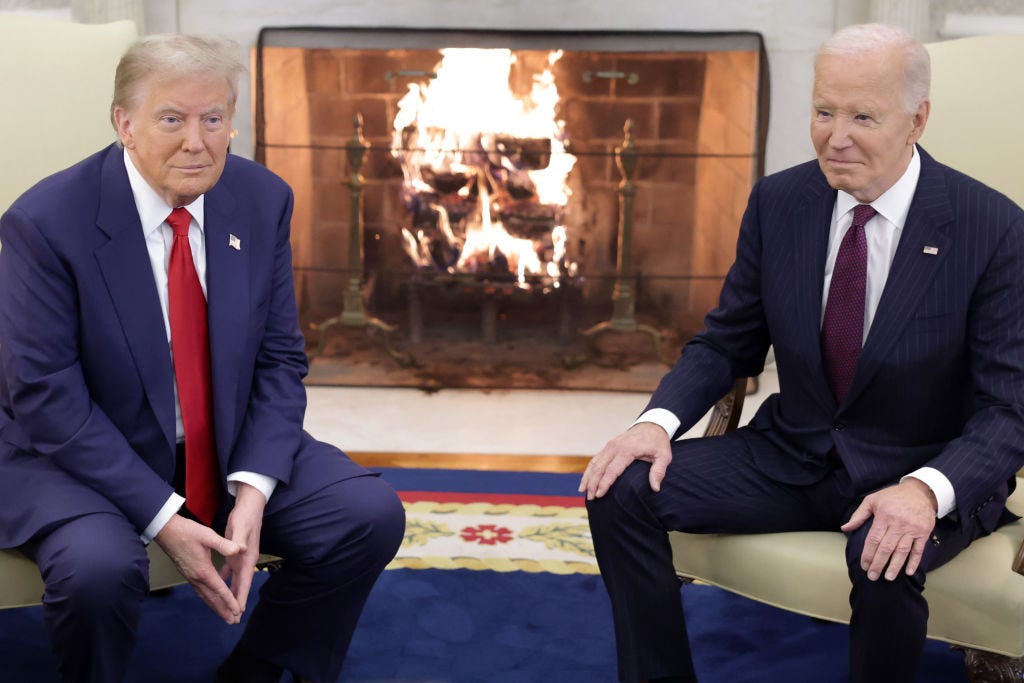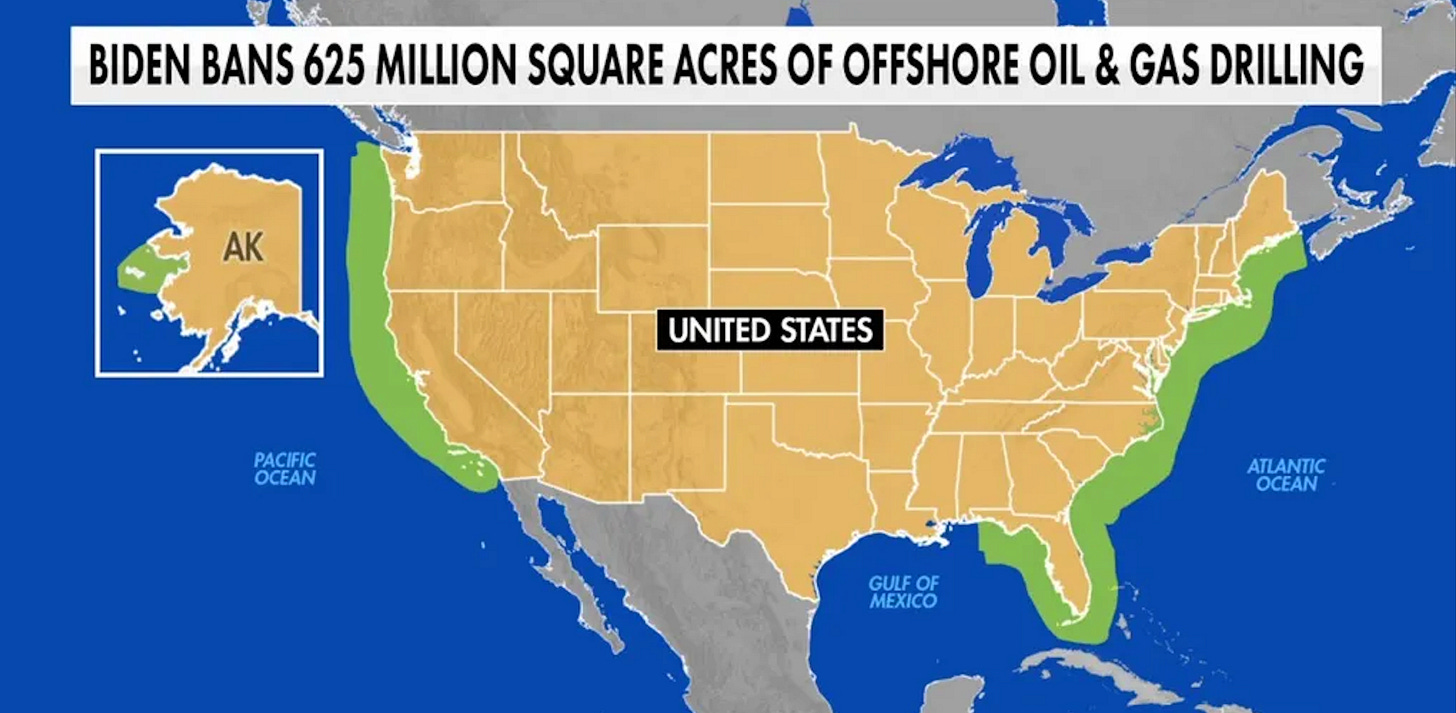The Bitter End
Biden’s latest drilling ban is a powerful demonstration of a broken federal government.
“My great concern is not whether you have failed, but whether you are content with your failure.” – Abraham Lincoln
Harvey Silverglate’s 2009 book “Three Felonies a Day” is one that you ultimately regret digesting. The author argues compellingly that federal statutes have metastasized to the point where no one can read, interpret, or confidently avoid violating the countless codes, regulations, and criminal laws that emanate from Washington. The net effect of this dangerous deviation from English common law is to bestow upon federal prosecutors godlike powers, permitting them to charge virtually any civilian with a felony if enough time is spent rummaging through their personal business. Simply being charged with a crime can destroy a person’s life with minimal recourse, and the current system is dangerously ripe for abuse, particularly as it pertains to punishing political opponents.
When Silverglate’s book was published, several reviewers accused him of exaggerating the situation, especially the title. “I would bet the number is more like three felonies a month,” proclaimed David Henderson of the Library of Economics and Liberty, as though the distinction makes much of a difference. With the political teams in Washington about to change jerseys and retribution a nearly impossible temptation to resist, we suspect Silverglate will continue to be remarkably prescient in substance.
Arbitrary prosecutorial powers are but one weapon of the executive branch, and the bloated United States Code grants sitting US presidents near-limitless opportunity to exercise authority with the stroke of a pen. The trick of the trade is to find an old law passed by Congress that ceded an inch or two of power to the executive branch and then drive a mile-wide wedge through it, daring the other two branches of government to do something about it. They rarely do. This is how outgoing President Joe Biden leveraged 24 words of a 63-page bill passed by Congress 70 years ago to accomplish the following:
“On Jan. 6, two weeks before Trump’s inauguration, Biden issued an executive order protecting 625 million acres of unleased coastal waters from offshore oil and gas drilling. Areas included in the ban, which has no expiration date, are the East Coast, much of the West Coast, the eastern portion of the Gulf of Mexico and part of the Northern Bering Sea.
‘President Biden has determined that the environmental and economic risks and harms that would result from drilling in these areas outweigh their limited fossil fuel resource potential,’ the White House said.
Hours later, Trump responded, telling radio host Hugh Hewitt, ‘I’ll unban it immediately.’”
The predictable parties were thrilled with the news:
“Greenpeace USA commends President Biden for taking decisive action to permanently protect these areas, which play a vital role in sustaining life, combating climate change and supporting the livelihoods of coastal communities. As coral reefs and Arctic sea ice disappear in rapidly heating oceans and millions of Americans suffer from climate-fueled storms, droughts, fires, and floods each year, halting any new offshore drilling is the kind of science-driven step needed right now. We have learned the hard way that when we allow oil drilling, we will have spills, often with catastrophic consequences. This is an important step toward consigning the harmful and short-sighted practice to the annals of history.”
The offshore drilling ban is but one of several executive actions Biden has signed in the final days of his presidency that will substantially impact the energy industry. Exploring the basis for Biden’s claimed authority on this particular issue lays bare just how far afield the federal government has deviated from what the framers intended. It also outlines what, if anything, incoming President Trump can do to reverse this memoradum or even dampen its impact. Let’s drill into the contemptible details.



